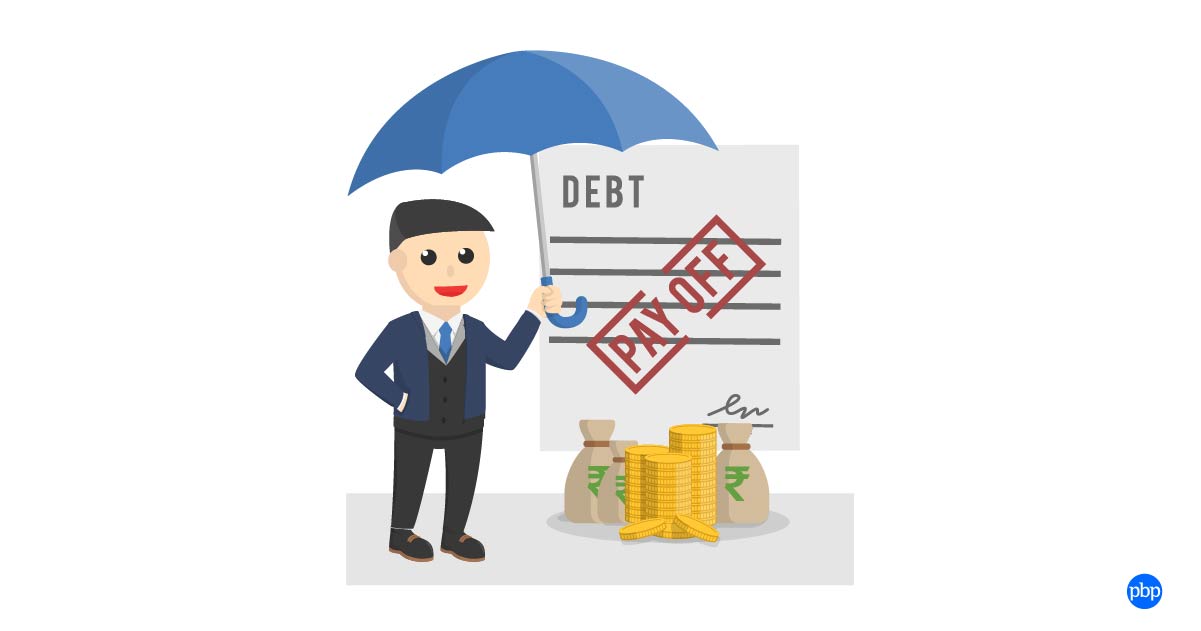Debt doesn't vanish—it transfers. When unexpected events occur, your outstanding loans can become a burden on your loved ones. This is where life insurance steps in as a financial shield, ensuring your family stays secure and debt-free.
In this blog, we will discuss how Life Insurance ensures financial security in paying off debts
Key Benefits of Life Insurance
Death Benefit
One of the biggest benefits of Life Insurance is the death benefit payout. In your absence, your family can easily pay off the debt through the death benefit payout via a life insurance policy. Both permanent and term life insurance policies provide death benefits to policyholders.
Cash Value withdrawal
Suppose you have invested in a permanent life insurance policy, like an endowment plan or whole life insurance policy. In that case, you get the right to withdraw a certain amount in times of family emergencies. You can pay off debts easily with that policy’s cash value. However, withdrawing cash may minimize your death benefit, subject to the terms and conditions of your policies.
You can take a loan against the insurance policy
Another way to use life insurance to pay off debts is by taking a loan against the life insurance policy. The amount you can borrow, repayment, and interest rate depend on the terms and conditions of the policy. Be sure that when you take the loan against the policy, it will not affect the death benefit and interest rates, unlike debit cards or credit cards.
Option to surrender value
If you have purchased a permanent life insurance policy and require a huge amount to deal with any financial emergencies, you can go with the option of surrendering your policy. If you surrender the policy, you'll receive its surrender value, which is typically a portion of the accumulated cash value or investment returns. However, doing so will end your coverage, and you will forfeit any death benefits.
Also Read: How To Generate Leads For Life Insurance?
Key factors to keep in mind while using a Life insurance policy to pay off debts
Effectively impact your financial goals
Before using a life insurance policy amount to pay off debts, analyze whether to pay off debt, and consider the impact of long-term financial goals like child education, retirement planning, or ensuring financial security for the family. Using a Life insurance policy does not overcome your life goals.
Impact of Death Benefit
When we choose to withdraw the cash value against your permanent life insurance policy. It may reduce the death benefit, which may affect your loved one’s financial security in your absence.
Check out the tax implications
Depending on your life insurance policy and the method used to access the funds, there may be tax implications associated with using life insurance to pay off debt. Consult a tax expert to understand the tax consequences and determine the most tax-efficient strategy for using life insurance to pay off debt.
Analyze the costs and benefits
While using life insurance to pay off outstanding debts, always prefer to compare the repayment options, like debt consolidation loans, personal loans, and balance transfer credit cards.
Thoroughly check the Terms and Conditions
Every life insurance policy comes with its own set of terms and conditions governing cash value withdrawals, policy loans, and surrenders. Before using your policy to pay off debt, be sure to review these terms carefully and consult your insurance provider or financial advisor to fully understand any potential consequences and limitations.
Also Read: What is Married Woman Property Act in Term Insurance?
Bottom Line
Debts are heavy, but life insurance can lift the weight off your family’s shoulders. Instead of leaving them to struggle with financial liabilities, a well-planned life insurance policy ensures they remain secure and debt-free. Life insurance is more than just an inheritance tool—it’s a financial shield that safeguards your family’s future. If you carry significant debt, investing in the right life insurance policy is a responsible and strategic move.









